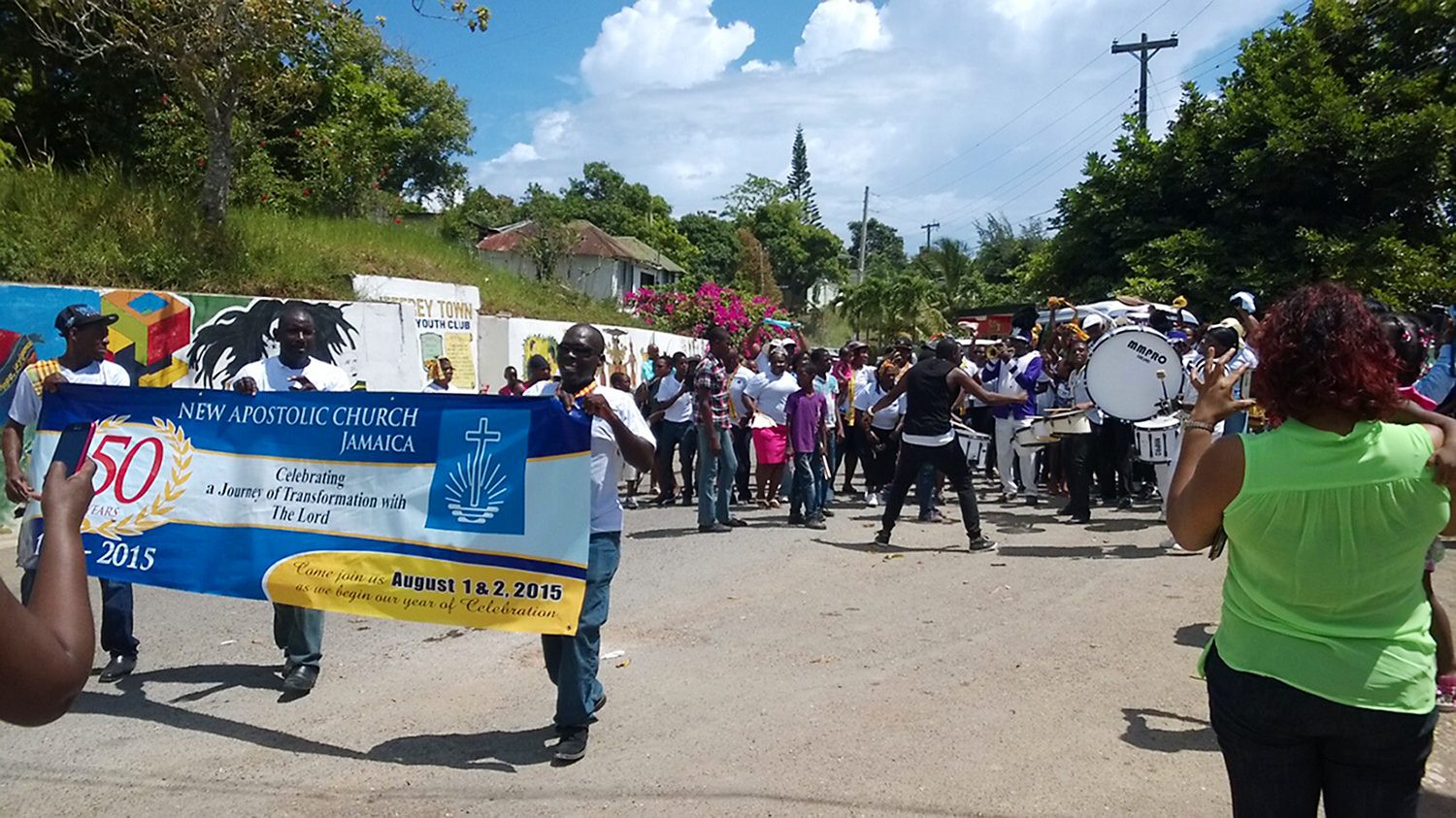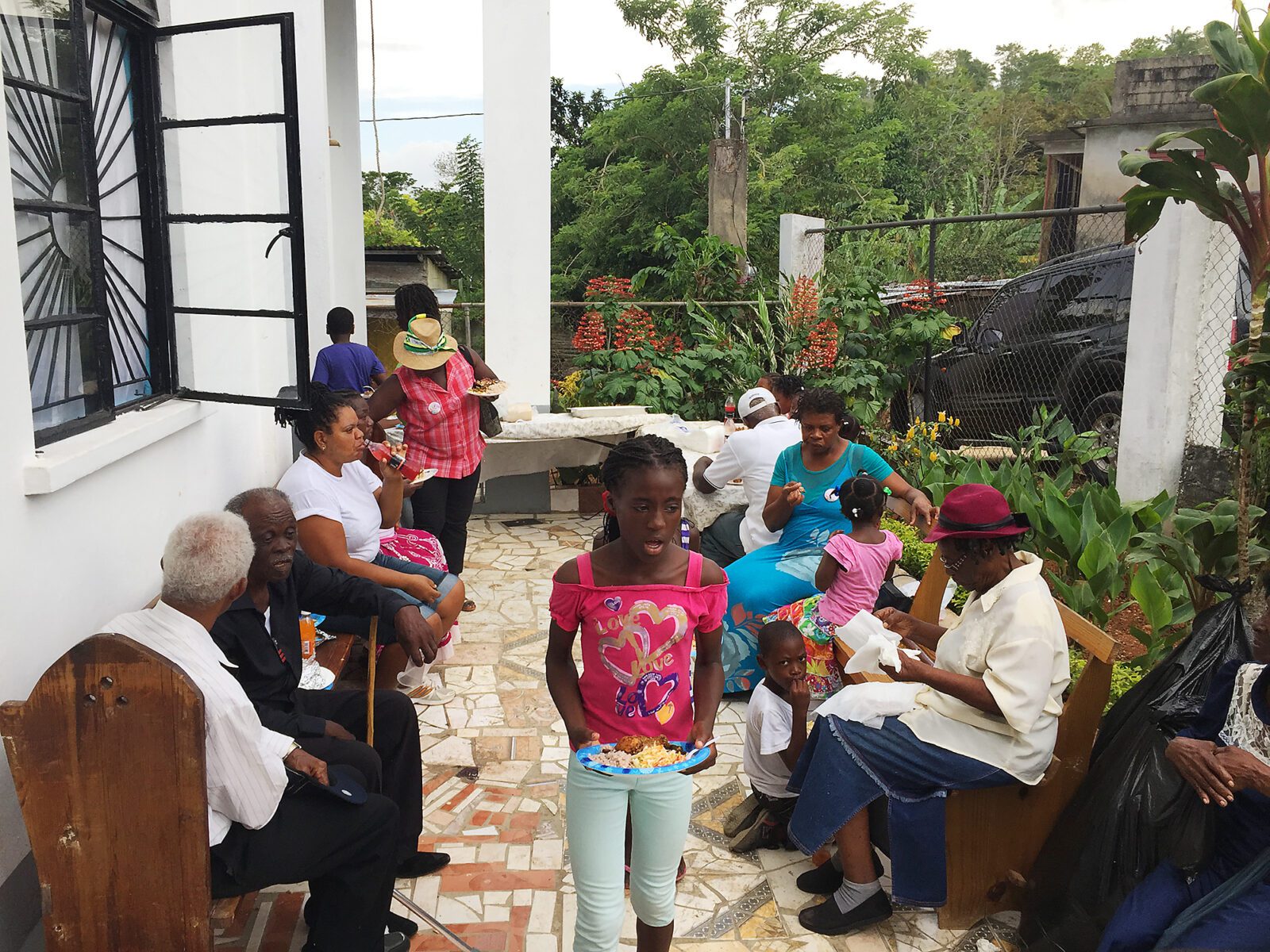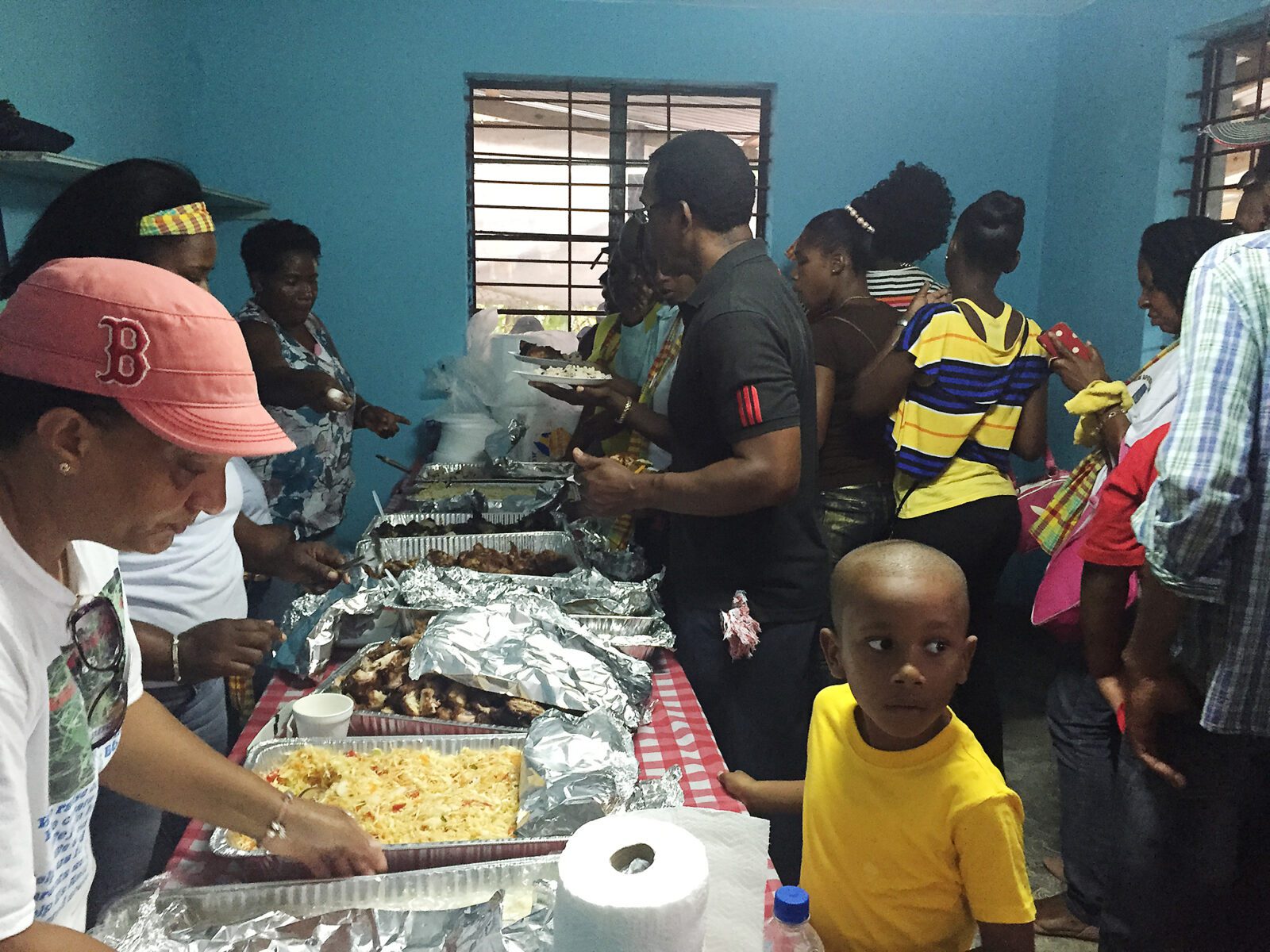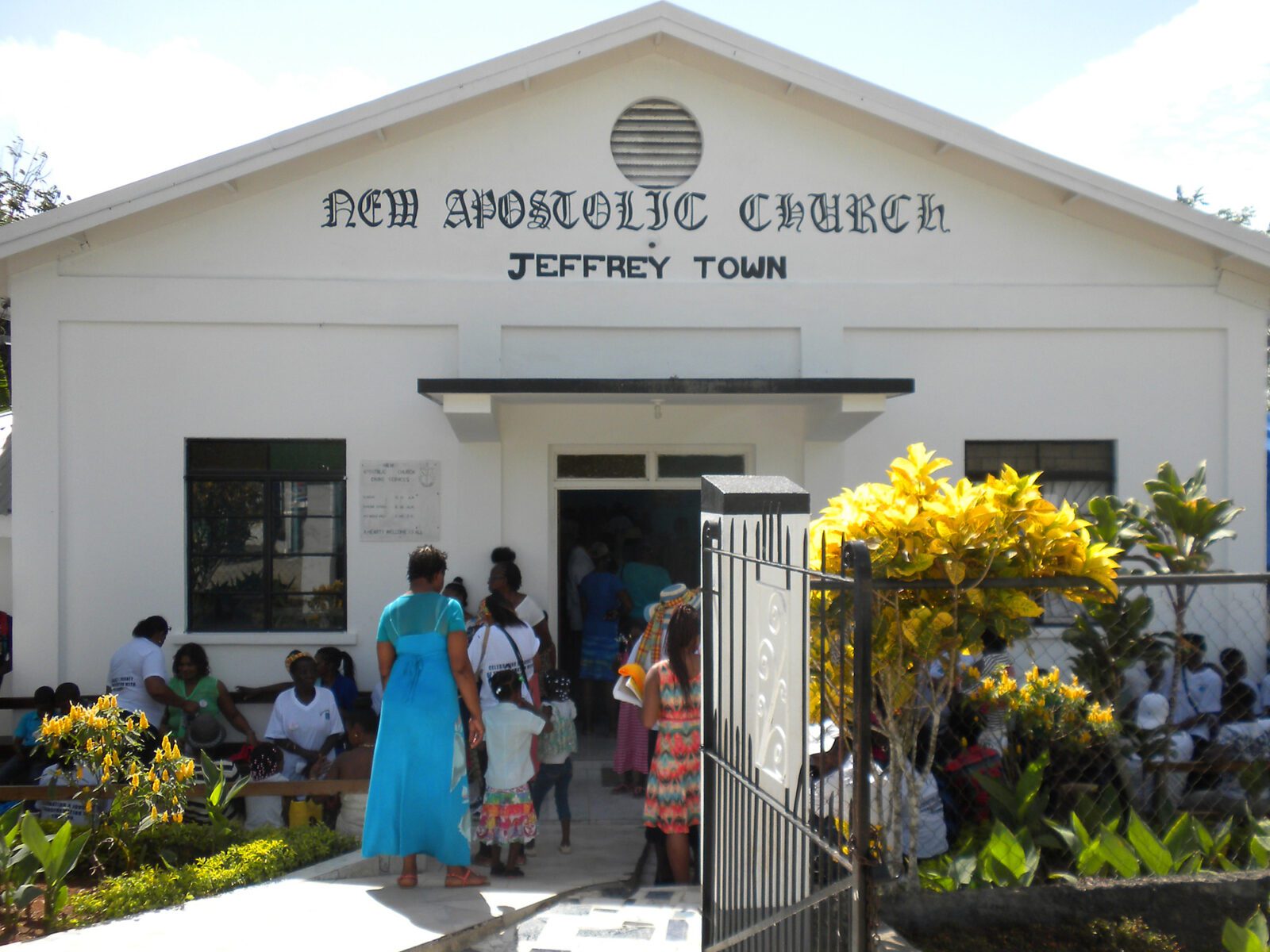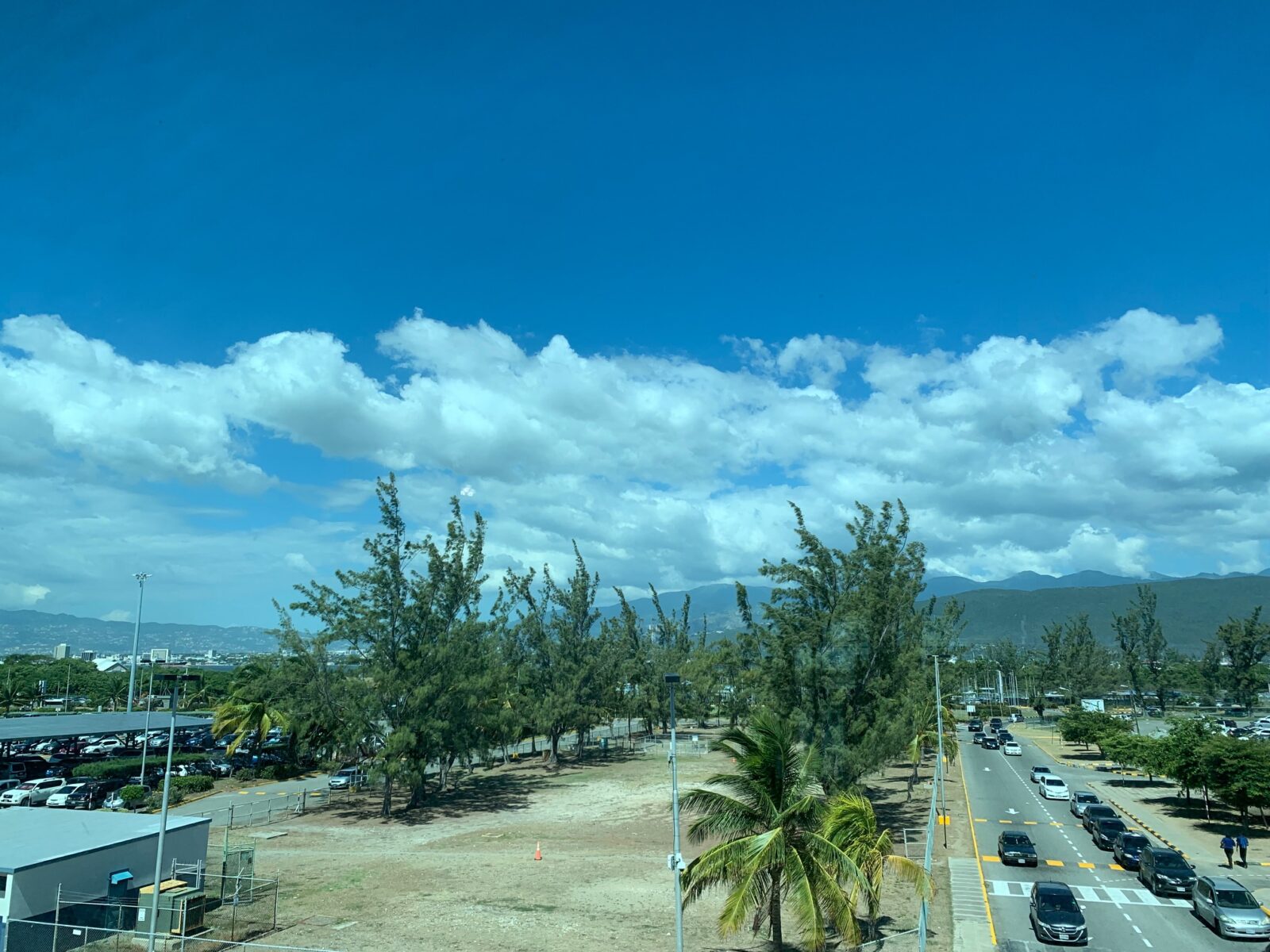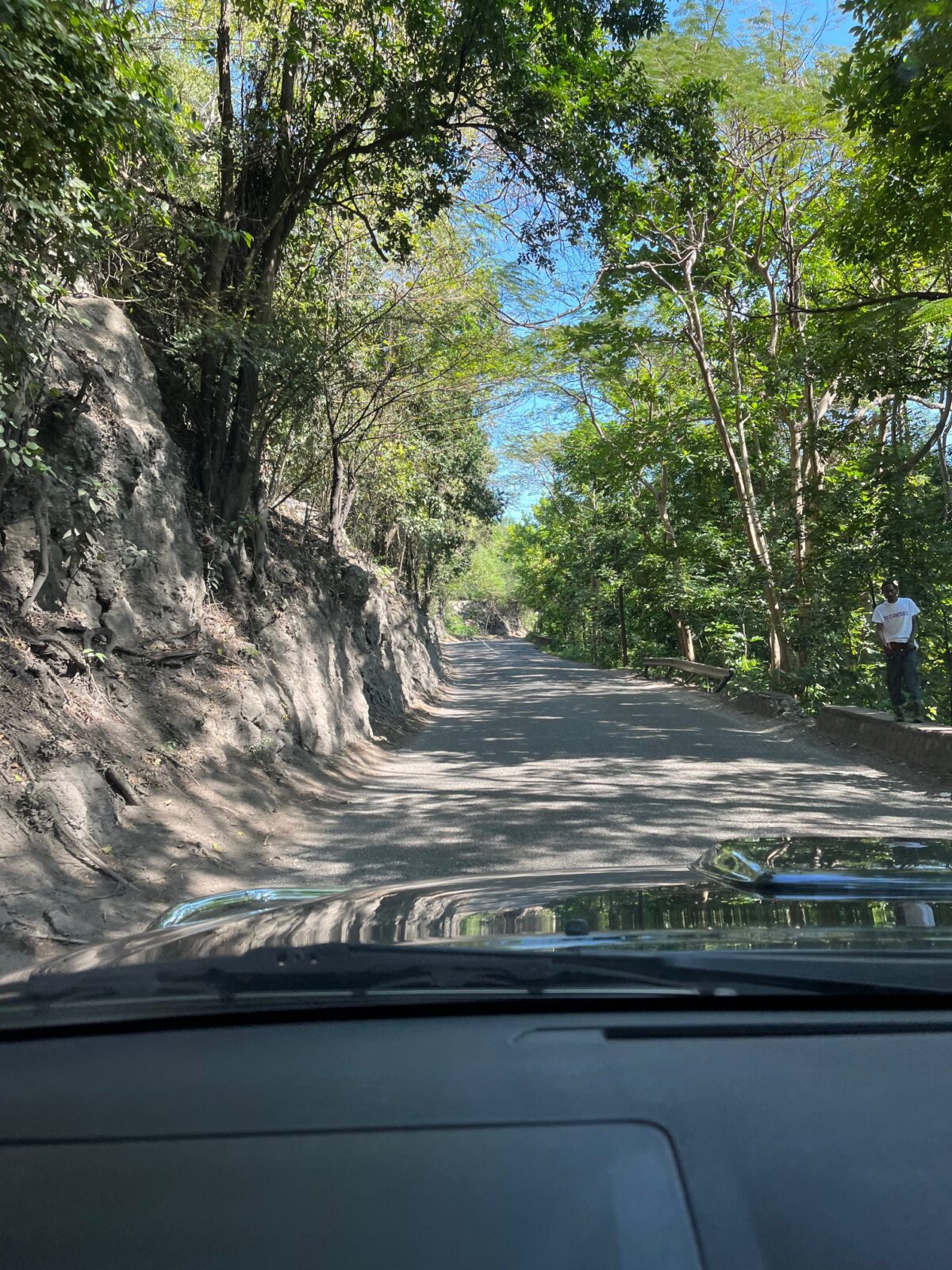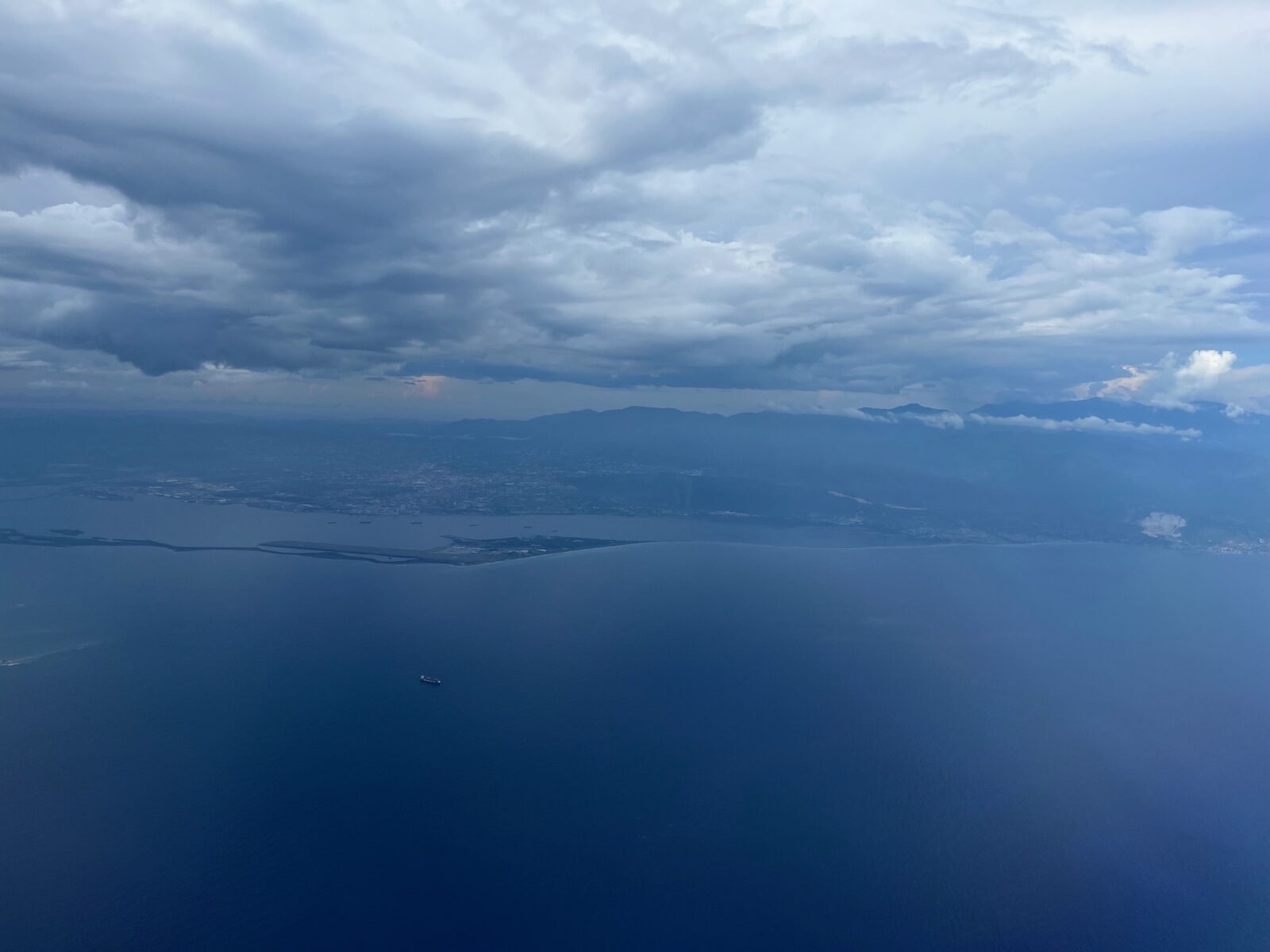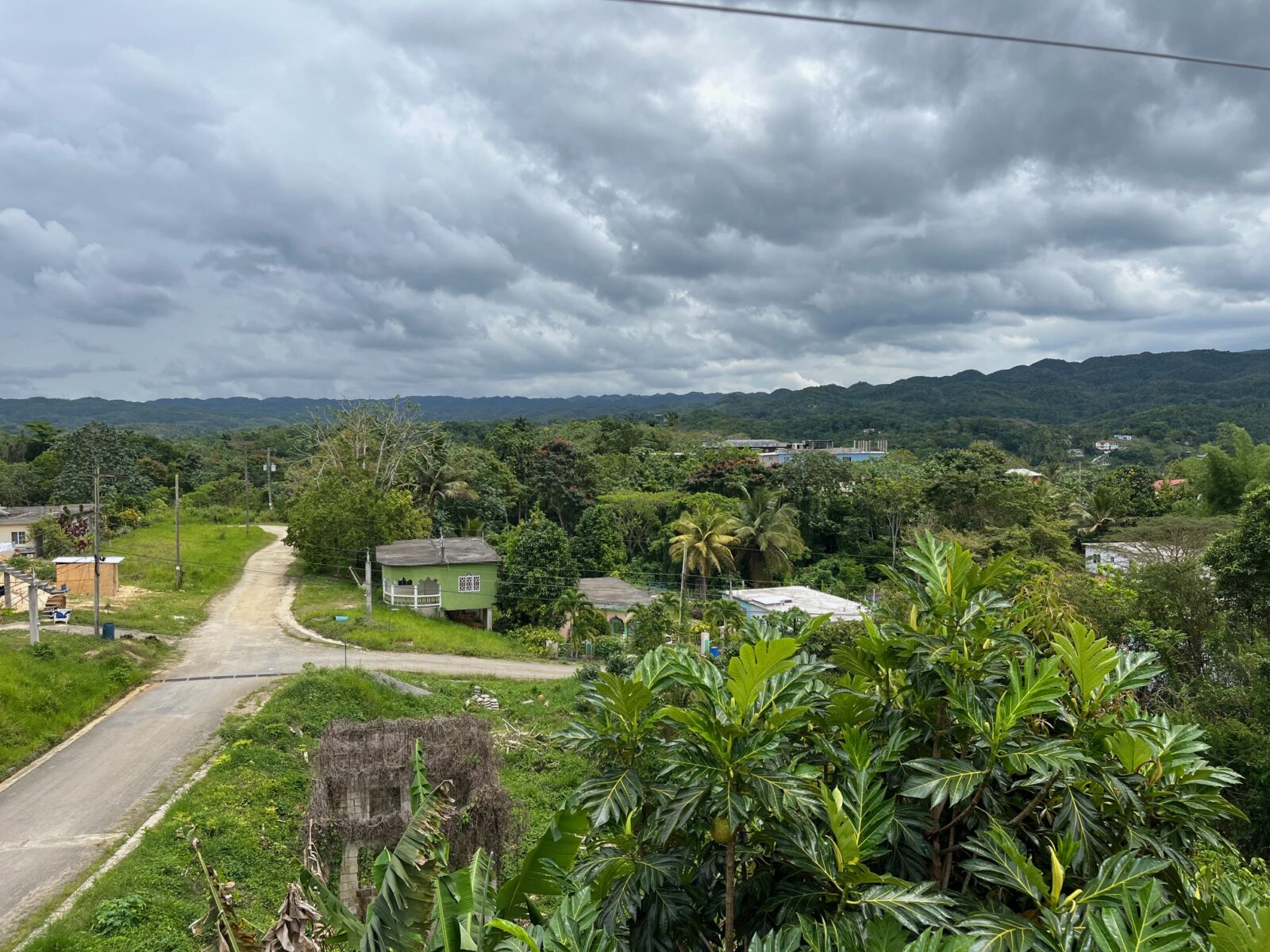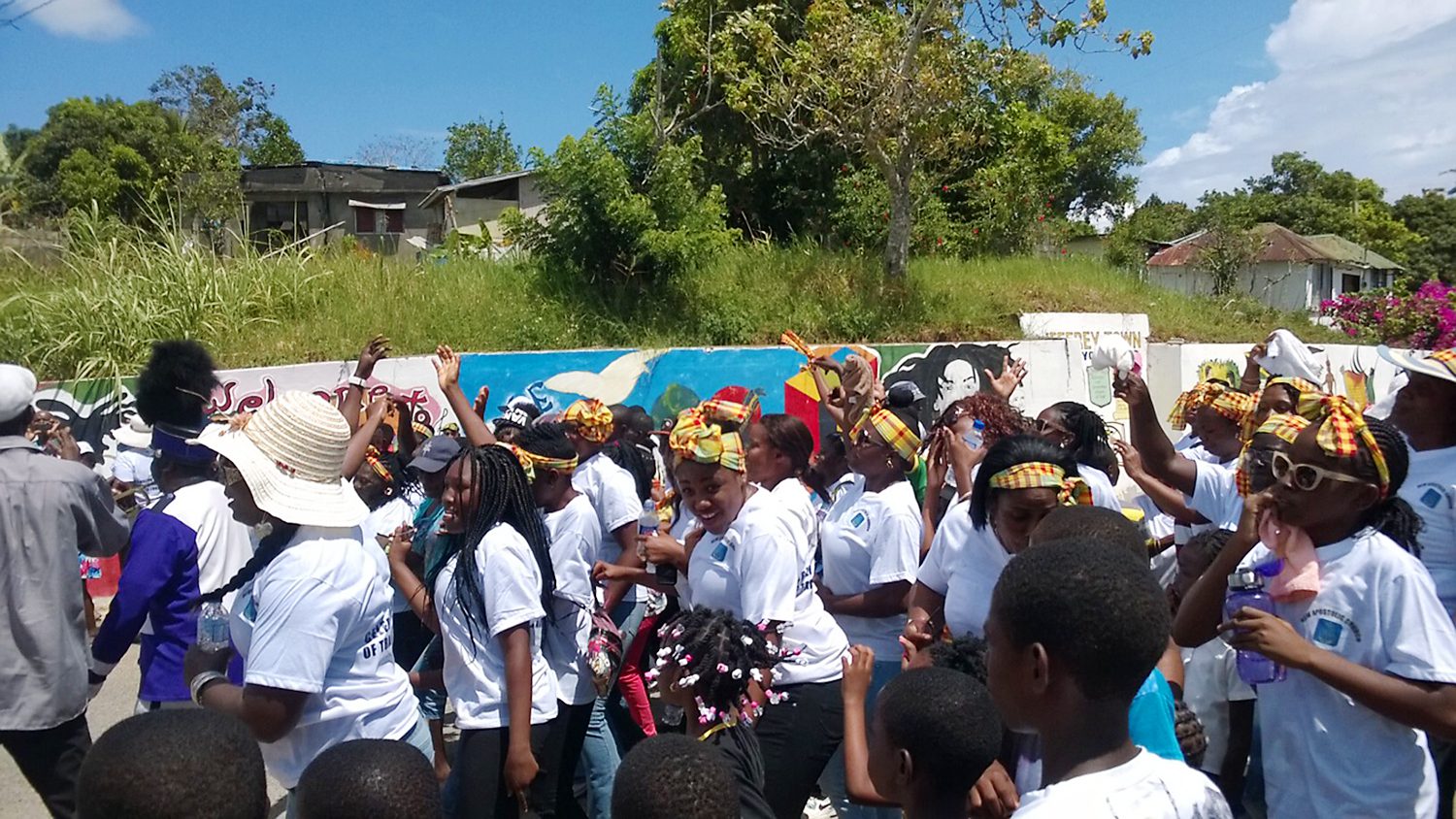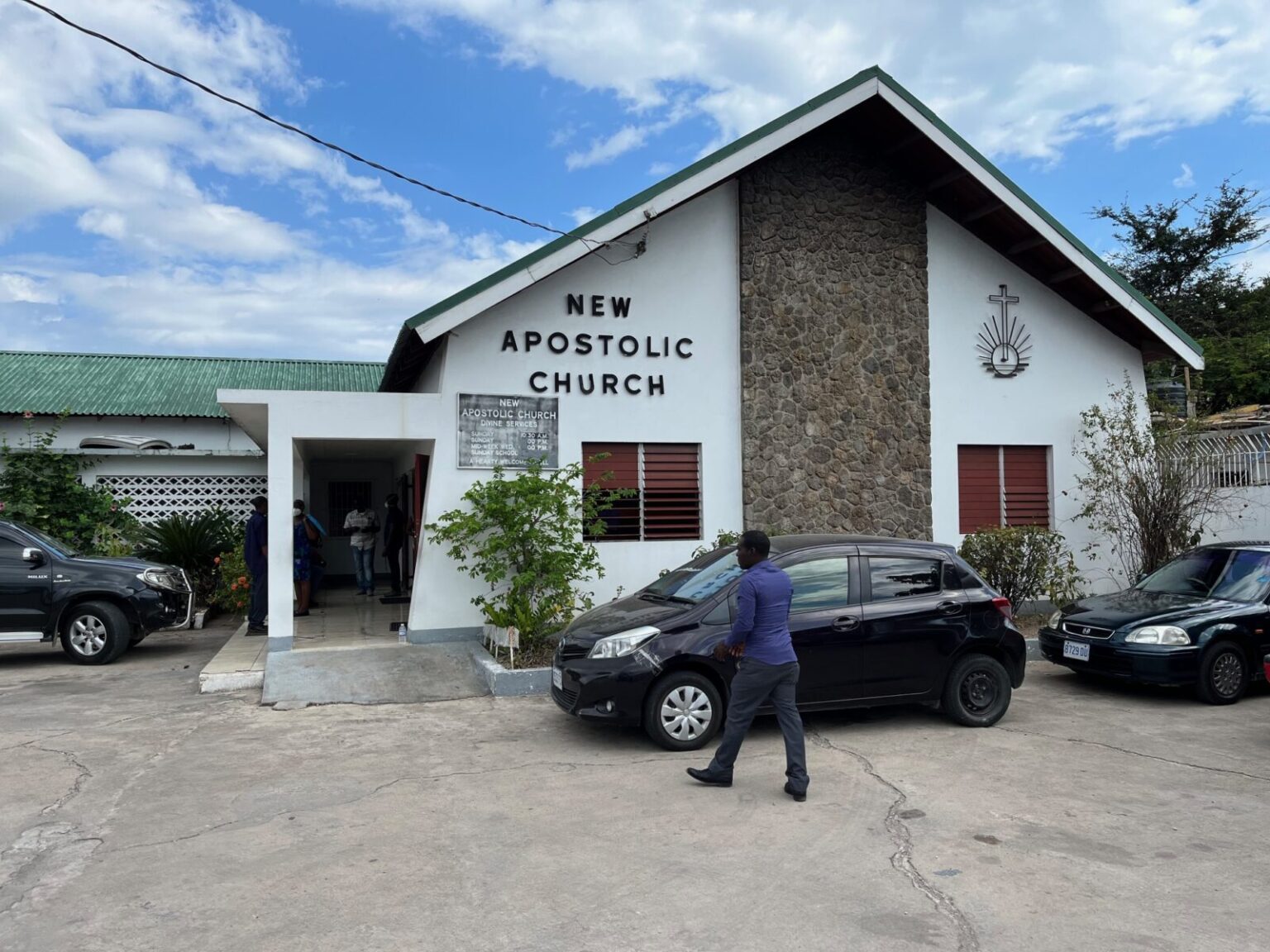
Faith, fellowship, and Caribbean vibes: In Jamaica, the New Apostolic Church brings people together with heart, commitment, and an extra dose of love.
Historic new course with a global impact
When the first New Apostolic congregation outside North America was founded in Jeffrey Town on 8 March 1965, no one could have imagined the development it would take. District Apostle Kraus had the courage to set out on a new course and thus laid the foundation for a spiritual network that today encompasses 72 countries worldwide.
Almost sixty years later, on the weekend of 9 March 2025, members from all seven congregations on the island gathered for a divine service with District Apostle John Schnabel and Apostle Robert Ferguson in the church in Kingston. A group of 186 brothers and sisters came together: a vibrant, cheerful congregation, characterised by conviction and Caribbean warmth. The day before, there was a seminar in Jeffrey Town with 42 workers. One of the topics was the power of forgiveness—in line with a song that almost everybody knows:
“Is there a place for the hopeless sinner
Who has hurt all mankind just to save his own?”

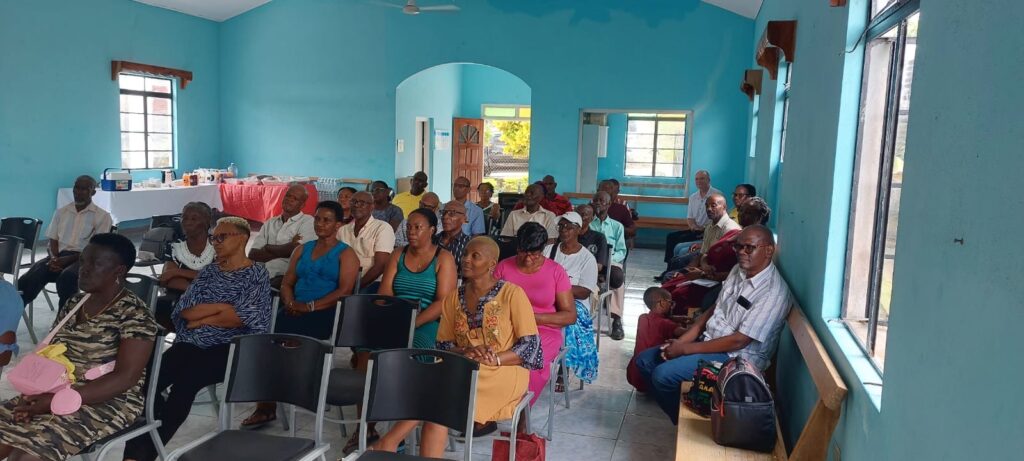
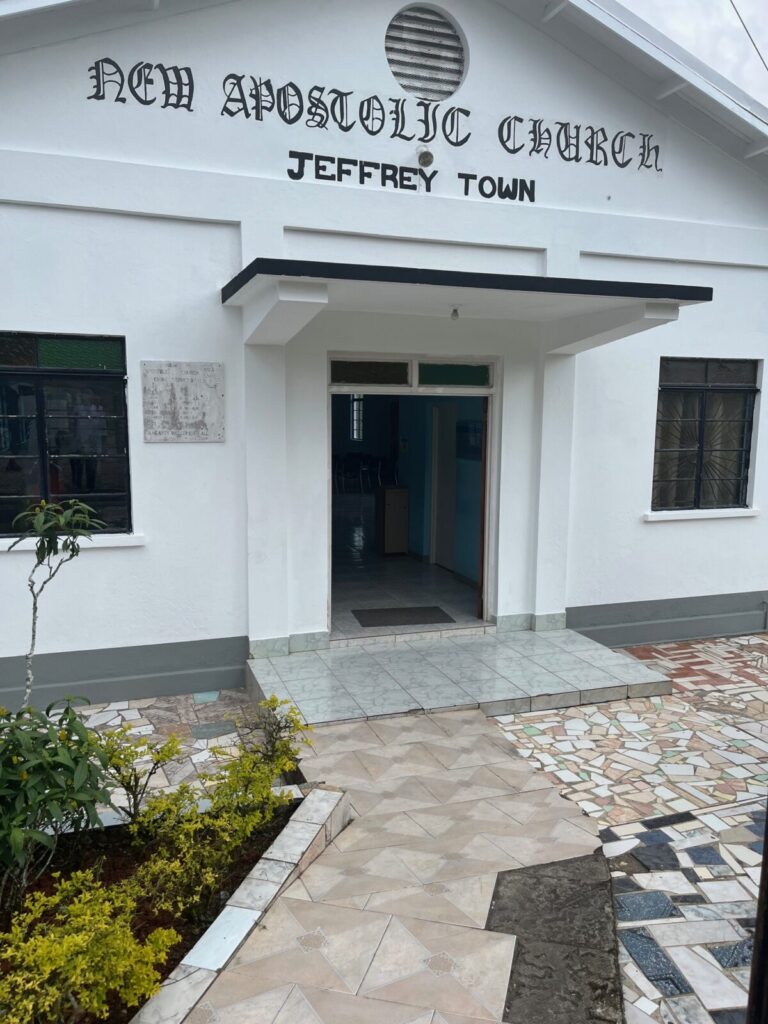
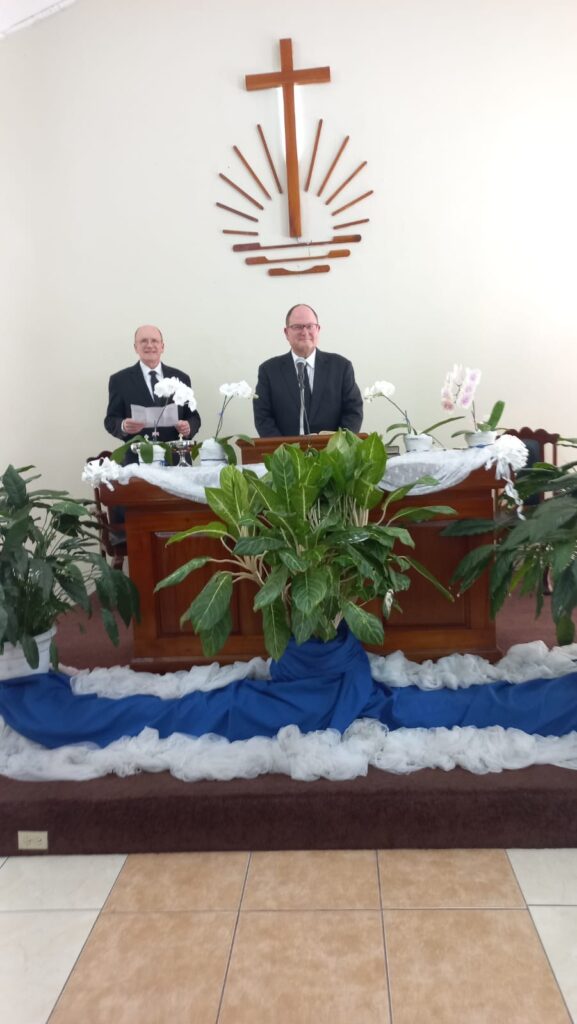
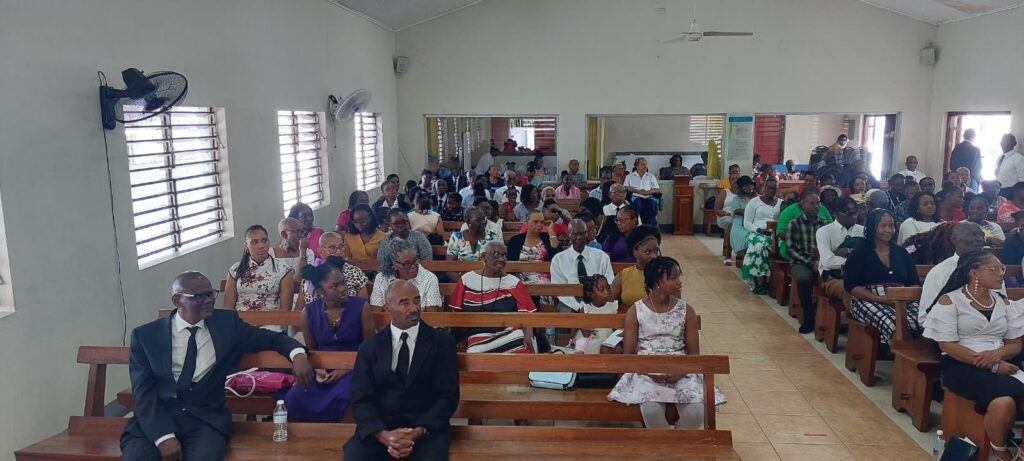
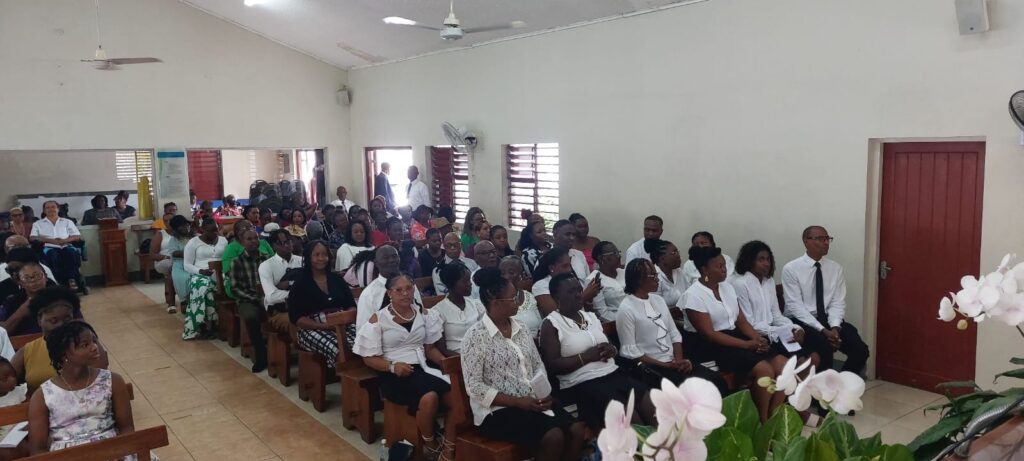
When taking leave becomes a celebration of fellowship
This line from Bob Marley’s “One Love” poses the question of reconciliation, of responsibility, and of a place for everyone. In Jamaica, faith has many timbres, and the New Apostolic Church brings its own voice to this choir. This becomes particularly impressive when dealing with bereavement.
Because in Jamaica funerals are much more than an official act: they are important social events. They include weeks of planning, large crowds, and elaborate preparations: funerals are more like a celebration that bring people together—families, neighbours, friends; both local and overseas. Weeks or even months can pass before the actual funeral takes place. People take their time: for the preparations, for the arrival of relatives, for the reunion.
Faith, culture, and consolation go hand in hand
Shorn Stephenson, the district rector who lives in Jamaica, describes how this event is organised. In rural communities it begins with the traditional grave digging, in which family and volunteers dig the grave together or build a tomb. This is accompanied by scores of people, sometimes hundreds, throughout the day who celebrate, make friends, and pass the time. Shorn Stephenson remembers: “In my childhood, the casket was made at the same time. Carpenters would gather at the home of the deceased and take the raw lumber and craft it into a beautiful casket.”
This is followed by a wake called Nine Nights: nine nights up to the day of burial. This is practised mostly in rural communities. People visit the house of the deceased to show support and give encouragement. They spend time together and play games.
On the last evening before the funeral, a big wake takes place, sometimes with hundreds of people. There is lots of music and singing until the wee hours of the morning. “It’s like the feeding of the five thousand. Music and singing (mostly gospel) are the order of the day,” the District Elder says.
The funeral day itself begins with a church service and usually ends with a lavish meal for all those present. Some funerals can last many hours. There are tributes in songs and speeches to acknowledge and show esteem for the deceased, which usually take the most time.
Hope that carries on
In Shorn Stephenson’s descriptions it becomes clear that taking leave of a loved one in Jamaica is a communal event—a celebration of life. The religious dimension is deeply embedded in these traditions. In the midst of emotions, songs and memories, there is always the message of hope that resonates: hope in the resurrection, in a reunion, in living on with God.
New Apostolic Christians in Jamaica combine these cultural traditions with their faith: words of consolation from the Bible, collective prayer, and the thought of eternal fellowship with Christ give support. This is how church becomes a place of connectedness, of fellow feeling—beyond life itself.
Religious traditions and cultural expressions come together in a very special way in Jamaica. The result is a spirituality that is deeply rooted in history, is open to the community, and is full of music, emotion, and love.
“As it was in the beginning (one love)
So shall it be in the end (one heart), alright
Give thanks and praise to the Lord
And I will feel alright
Let’s get together and feel alright.”
Photo: NAC USA





